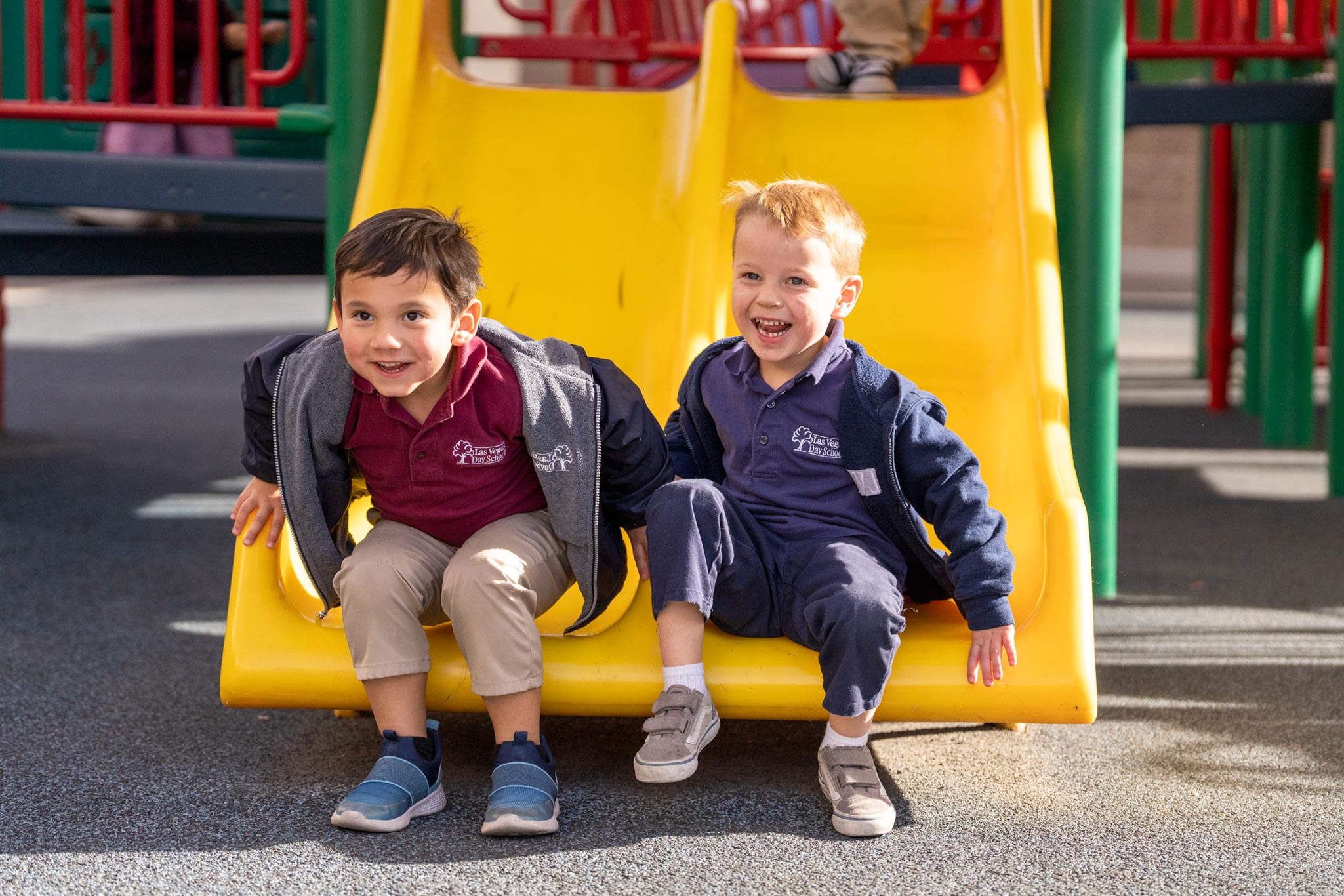Explore virtual reality in education at Private Grade School Peoria
Wiki Article
The Significance of Interactive Tasks in Quality School Education
Interactive tasks play an important role in elementary school education and learning. They engage pupils and improve discovering results. With group jobs and hands-on experiments, students experience the material in a practical means. This approach provides to varied knowing designs and advertises vital abilities. However, the benefits extend beyond academics. Checking out the deeper effect of these tasks discloses their significance fit young learners' futures. What changes take place when pupils proactively participate?Enhancing Involvement Through Interactive Discovering
Typical training methods have their advantages, interactive understanding substantially enhances student involvement in grade school education and learning. This approach motivates active engagement, allowing students to submerse themselves in the learning procedure. By utilizing group tasks, hands-on experiments, and technology-driven sources, instructors develop an atmosphere where trainees feel more attached to the material.Interactive understanding assists in cooperation amongst peers, promoting interaction skills and teamwork. It likewise satisfies diverse understanding designs, ensuring that visual, acoustic, and kinesthetic students can all thrive. Students are much more most likely to keep information when they proactively participate, as opposed to passively receiving expertise.
This vibrant method not just makes finding out pleasurable yet also infuses a feeling of ownership in students concerning their instructional journey. As they involve with the web content, their curiosity and motivation to find out rise, laying a strong structure for future academic success.
Creating Vital Thinking Skills
Interactive knowing not only enhances interaction however additionally functions as a driver for creating essential thinking abilities in elementary school students. Via tasks such as problem-based understanding, discussions, and hands-on experiments, pupils are motivated to evaluate information, evaluate various perspectives, and create reasoned final thoughts. These interactive experiences require students to question assumptions, leading them to assume more deeply concerning different subjects.
In addition, interactive tasks frequently existing real-world situations that test students to use their knowledge artistically. By navigating with these challenges, they find out to identify appropriate info and make educated choices. This process fosters not only individual critical reasoning yet additionally encourages trainees to verbalize their believed processes, boosting their ability to communicate effectively. Because of this, interactive learning settings grow a generation of vital thinkers who are much better prepared to tackle complicated problems in their future academic and professional endeavors.
Cultivating Partnership Amongst Peers
Fostering cooperation among peers is necessary in quality institution education and learning, as it improves team effort and interaction abilities. Engaging in team tasks aids trainees construct trust and regard for each other, laying the foundation for efficient partnership. In addition, problem-solving together enables pupils to pick up from each various other and create a collective strategy to challenges.Teamwork and Communication Skills
Reliable synergy and communication skills are important parts of a successful quality college education. Taking part in interactive tasks encourages trainees to collaborate, share ideas, and solve issues with each other. Such experiences advertise the growth of important communication capabilities, allowing youngsters to reveal their ideas clearly and listen actively to others. With teamwork, students discover to value varied viewpoints, cultivating a sense of neighborhood and shared responsibility. Structured team tasks, whether in academics or creative projects, improve peer interactions, teaching children how to discuss duties and fix disputes. Subsequently, these skills not just contribute to a positive classroom environment but additionally prepare trainees for future collective endeavors in greater education and the work environment. Overall, team effort and communication are foundational to holistic development in grade school.Structure Trust and Regard
Structure trust fund and respect amongst peers functions as a foundation for successful collaboration in quality institution atmospheres. When pupils feel valued and respected by their schoolmates, they are most likely to engage proactively in group tasks. Interactive activities, such as team jobs and participating video games, offer opportunities for trainees to discover from each other, fostering a sense of community. This environment urges open interaction, enabling pupils to reveal their concepts and viewpoints without fear of judgment. As trust fund develops, pupils end up being a lot more happy to share obligations and support each various other's knowing. Ultimately, growing an ambience of count on and respect improves not only academic end results however additionally social development, equipping trainees with essential interpersonal abilities for their future endeavors.Problem-Solving With each other
Collaborative problem-solving engages pupils in critical reasoning and teamwork, crucial abilities for their personal and academic development. When pupils interact to tackle obstacles, they discover to communicate efficiently, regard diverse viewpoints, and leverage each other's toughness. This process enhances their ability to assess troubles from numerous angles and develop creative solutions. Group activities, such as scientific research experiments or mathematics challenges, advertise energetic engagement and promote a feeling of area. As pupils team up, they also build social skills, finding out to negotiate and compromise, which are crucial for future interactions. Eventually, analytic with each other grows a supportive discovering environment, encouraging pupils to take ownership of their education and learning while preparing them for joint ventures beyond the class.Motivating Creativity and Development
Urging creativity and development in elementary school education and learning can be substantially enhanced via hands-on knowing experiences. These activities allow trainees to involve straight with ideas and products, cultivating imaginative thinking. In addition, joint team projects can promote varied ideas and solutions, additionally nurturing a creative setting.Hands-On Discovering Knowledge
A wide variety of hands-on knowing experiences greatly boosts imagination and advancement in elementary school education. Engaging pupils in functional tasks allows them to apply theoretical expertise in real-world contexts, promoting deeper understanding. By manipulating products and devices, youngsters establish important problem-solving skills and find out to think outside package. These experiences influence inquisitiveness and encourage trainees to explore their rate of interests even more. Additionally, hands-on tasks can bridge different topics, connecting scientific research, art, and mathematics in significant ways. This interdisciplinary technique motivates pupils to see connections and assume creatively. Eventually, hands-on discovering experiences support a generation of trendsetters, equipping them with the skills and confidence required to deal with future obstacles and contribute to society in distinct methods.Collaborative Group Projects
Hands-on understanding experiences normally lead to the incorporation of collaborative group projects, which play an important duty in fostering imagination and technology in grade college education and learning. These projects encourage students to work with each other, sharing ideas and point of views, which enhances analytic abilities and crucial reasoning. Via collaboration, pupils discover to interact properly and regard varied point of views, important abilities for their future. Additionally, group jobs give opportunities for pupils to experiment with various roles, enhancing article their flexibility and self-confidence. Participating in this cooperative atmosphere enables them to explore their creative thinking, pushing the limits of conventional learning. Inevitably, collaborative group tasks not just improve the instructional experience but also prepare students for real-world obstacles that call for teamwork and innovative reasoning.Building Confidence and Freedom
As students participate in interactive activities, they typically discover possibilities to build self-confidence and self-reliance. These tasks, whether they include hands-on projects, role-playing, or problem-solving jobs, motivate trainees to take effort and express their concepts honestly. By taking part in such experiences, my link students discover to trust their capabilities and choose without depending entirely on assistance from educators or peers.Interactive activities cultivate a feeling of possession over understanding. They establish important believing skills and durability when trainees take on obstacles collaboratively or individually. This process not only boosts their understanding of the subject issue but likewise empowers them to take dangers in their learning trip.
As they navigate different interactive scenarios, trainees slowly shed their insecurity, leading the way for raised self-worth - Private School. Ultimately, these tasks play a necessary role in nurturing positive and independent students, equipped to encounter future academic and personal obstacles
Developing a Positive Class Atmosphere
While cultivating a positive class setting is essential for reliable discovering, it calls for willful effort from teachers to create a space where pupils feel secure, highly regarded, and engaged. A positive ambience motivates collaboration, allowing pupils to reveal themselves without fear of judgment.Educators can achieve this by establishing clear assumptions, promoting mutual respect, and acknowledging private payments. Integrating interactive tasks better enhances involvement, making discovering more dynamic and enjoyable.
Additionally, a nurturing atmosphere sustains social-emotional advancement, as students learn to browse connections and fix disputes. Educators play an essential role in modeling favorable actions and reinforcing a culture of kindness and inclusivity.
Frequently Asked Concerns

How Can Moms And Dads Support Interactive Knowing in the house?
Parents can support interactive learning in the house Full Article by giving interesting materials, encouraging hands-on jobs, integrating instructional video games, promoting conversations, and creating a nurturing environment that advertises interest and exploration in their kids's learning experiences. (Kindergarten)What Sorts Of Interactive Tasks Are The Majority Of Effective?
Hands-on projects, collaborative video games, role-playing scenarios, and academic modern technology applications are among the most efficient interactive activities. These involve students, boost critical believing skills, and advertise synergy, inevitably cultivating a deeper understanding of various topics.Exactly How Do Interactive Tasks Accommodate Various Learning Styles?
Interactive tasks engage aesthetic, auditory, and kinesthetic learners by including diverse approaches. These activities promote comprehending via hands-on experiences, collective conversations, and aesthetic aids, enabling pupils to absorb info according to their favored learning style.What Are the Expenses Related To Implementing Interactive Activities?

Implementing interactive activities incurs prices such as products, training for teachers, technology upgrades, and possible center adjustments. Spending plan restrictions can likewise affect the frequency and range of activities provided to students in academic setups.
Just How Can Educators Assess the Influence of Interactive Understanding?
Educators can evaluate the impact of interactive discovering with observations, pupil comments, efficiency metrics, and comparative analysis of examination ratings before and after implementation, making certain a thorough understanding of engagement and understanding retention enhancements.With tasks such as problem-based understanding, arguments, and hands-on experiments, pupils are urged to analyze information, evaluate various point of views, and create reasoned verdicts. Interactive activities usually existing real-world scenarios that test pupils to apply their expertise creatively. Engaging in interactive activities motivates pupils to work together, share concepts, and address troubles with each other. Interactive tasks, such as team projects and participating video games, provide possibilities for trainees to learn from one an additional, promoting a sense of community. As pupils engage in interactive activities, they usually discover chances to construct self-confidence and freedom.
Report this wiki page